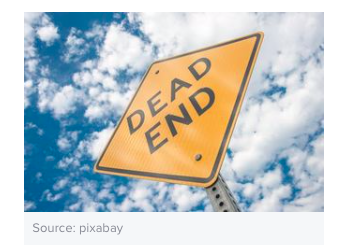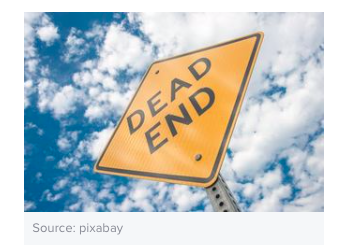Jeg syns det er viktig at bloggen også har et innlegg med tema: Hvordan unngå giftige relasjoner. For én ting er alle dårlige erfaringer man har gjort seg tidligere, men hva kan man gjøre for å unngå giftige relasjoner i fremtiden? Så her er utdrag fra en fagartikkel som gir 5 tips for hvordan unngå giftige relasjoner.
Fagartikkelen jeg referer til, er skrevet av den anerkjente amerikanske gestaltterapeuten Elinor Greenberg PhD, CGP, som har spesialisert seg på ulike personlighetsforstyrrelser, og narsissisme. Hun har fått publisert mange gode fagartikler om temaet, og denne artikkelen som hun har publisert, føltes nyttig å lese. Derfor deler jeg utdrag fra den.
Du finner lenke til hele artikkelen nederst i dette innlegget. Artikkelen er på engelsk.
Greenberg sier dette om giftige relasjoner
Many of us have had the experience of letting someone get close to us and then later regretting it. Toxic relationships can take many forms. We may have thought that someone was our best friend until she started making fun of us behind our back. Or, we may have idealized our handsome new lover without really noticing that he gets drunk every night, flirts with other women, and gets irritated when we complain. Some of us spend years in unhealthy relationships that make us very unhappy.
Hvordan unngå giftige relasjoner
One approach to avoiding toxic relationships is to learn how to quickly recognize psychological disorders that come with a lot of relationship baggage. Unfortunately, very few of us are trained to diagnose other people. However, we are very well equipped to notice other people’s impact on us. All it takes is for us to trust our gut reactions and pay close attention to how we actually feel when we are with new people.
Below are some tips that can help you assess whether your new friend or lover is likely to be toxic for you.
Her er Greenbergs 5 tips
Tip 1: How do you feel when you are with them?
This is the easiest way to tell if people are healthy or unhealthy for you. If being with them leads to you feeling inadequate, boring, discouraged, ugly, stupid, ashamed, or otherwise bad about yourself, they are likely to be toxic for you.
If, however, whenever you are with them you are so entertained and stimulated by your interaction that you forget to be self-conscious and you are comfortable and relaxed, they are likely to be healthy for you.
Tip 2: Are you your best self when you are in their company?
Some people bring out our best self. When we are with them, we act wisely and kindly and say and do interesting things. We feel smart, interesting, and capable.
Other people lead us into trouble by evoking the less pleasant aspects of our personality. It may be as simple as engaging in nasty gossip or as dangerous as encouraging us to shoot heroin. Many people have found themselves drawn into destructive and criminal acts by so-called “friends” that they normally would have avoided. There is a reason we are warned: Beware of the company you keep.
Videre sier Greenberg dette
Tip 3: When you leave, do you feel better, worse, or the same as before?
This may vary a bit if you are extraverted or introverted by nature, but in general there are some people who give more than they take and others who will leave you drained and in pain.
Energy Vampires: These are the people who suck the life out of you. When you leave their company, you feel drained and exhausted. Other people give back at least as much energy as they take. Obviously, if you repeatedly feel as if you are sucked dry after spending time with them, they are not healthy for you.
Put-Down Artists: These are the people who make jokes at your expense or subtly devalue you. After you spend time with them, you always feel worse about yourself.
Enliveners: They stimulate you. After you leave, you feel energized and better than before you were with them.
Obviously it is healthier for you to spend time with “Enliveners” than with “Energy Vampires” and “Put Down Artists.”
If you interact with someone and you leave the interaction feeling pretty similar to how you were before it, this person can be thought of as fairly neutral where your mental health is concerned.
Tip 4: Do you feel more creative and inspired after being in their company?
Muses: All of us have a creative side. Some people are very gifted in inspiring other people to think in a new way or come up with a new project. If you feel more creative and inspired after being with certain people, they are healthy for you.
Tip 5: Do you do physically and mentally healthy activities together?
There are some people who are good influences on us. In its simplest form, we find ourselves eating better, exercising more, and having mentally stimulating conversations when we are in their company. These are the friends who encourage us to sign up with them to study that new language we always wanted to learn, or take up tap dancing, meditation, or Tai Chi.
HELE ARTIKKELEN KAN LESES HER:
Om Elinor Greenberg:
Elinor Greenberg, Ph.D., CGP, is an internationally renowned Gestalt therapy trainer who specializes in teaching the diagnosis and treatment of Borderline, Narcissistic, and Schizoid adaptations in a lively and practical way. She has trained psychotherapists in her approach in the US, Norway, Sweden, Wales, England, Russia, and Mexico.
Dr. Greenberg is an Associate Editor of Gestalt Review, a faculty member of the New York Institute for Gestalt Therapy, and a faculty to the Gestalt Center for Psychotherapy and Training where she designed and teaches a post-graduate program on the diagnosis and treatment of Borderline, Narcissistic, and Schizoid Adaptations.www.elinorgreenberg.com






